
It is great pressure to represent to you our report about Bamunaanika Youth Development Group, led by Kimbowa Ivan. This group is located in Bamunaanika Village in the Mityana district which is 2 km from Mityana-Mubende high way.
The report am sharing is about the good work being done by friends from The People's Hub and Socially Homes International, and other volunteers team in Africa and Europe who are working well hard to help the people in our communities.
Our group has more than 30 members and we are so happy for the help. The Peoples Hub have been helping the Bamunaanika youth and the children especially the orphans. They have helped to fund us and got us support for food. With the funds we also managed to also get some fertilizer for the agricultural projects and now have some land, and we will start growing our own food to feed the children.
We thank the hub for their time and love that they have for the people of Mityana in Uganda. We are grateful for the money as we used it to get items for the children such as art and craft making materials, food and also items for our agricultural project.
Bamunaanika Youth Group projects are doing well. Projects include Book making, Vaseline and soap making. We have started by making books from local materials like cassava flour and we see that our aim of lifting the poor from poverty is being solved by employing local farmers of cassava.
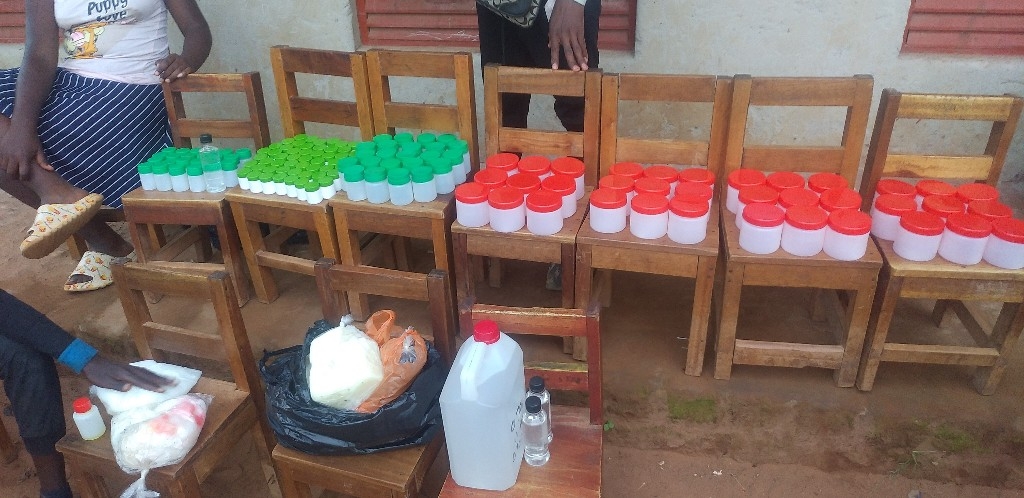
We have made some creative books but we now have a problem. We were taking our work into town and using an old cutting machine but the machine is not in good condition anymore.
We are asking the hub and friends if there is anyway they can help, maybe could help us source a new one through donations or alternatively someone if the region may have a second hand machine. We hope by sharing this information someone somewhere can help us.
A new cutting machine costs 6,000,000 UGX which is equal to £1,328.64 which we can't afford to get ourselves so we are looking at buying a 2nd hand one or if anybody has a used machine they no longer need we would be very grateful.
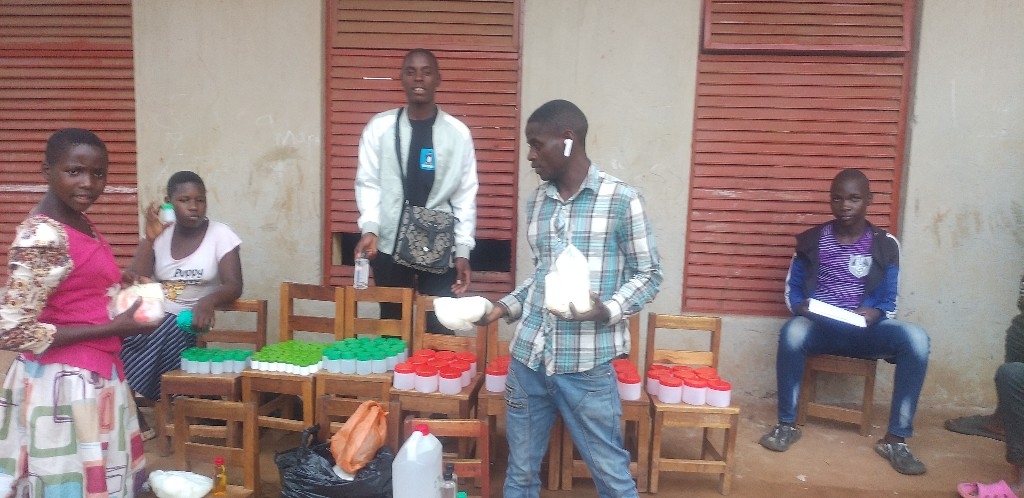
If you wish to donate to this project, please donate via PayPal [top of the page on the right] and just add a note that the money is for Kimbowa and the children in Mityana and we will send them the money direct straight away. Or alternatively if you have an old machine get in contact and we will ask one of our friends in Uganda to arrange the necessary transport to pick up so there is no inconvenience to yourself.
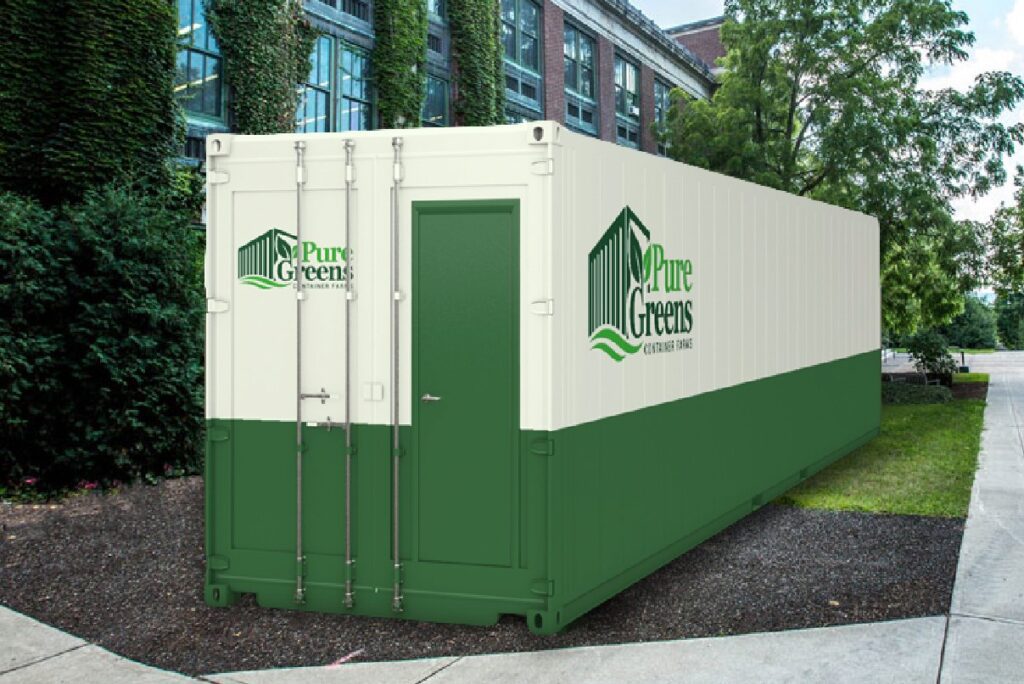
"Agriculture is our wisest pursuit, because it will in the end contribute most to real wealth, good morals & happiness."
Jefferson
Homelessness is a huge problem in the United States, but farming helps reduce it!
This was the opening statement in a recent article published in ‘Pure Green Blogs’, and it certainly caught the attention of the Socially Homes team, here at The Peoples Hub.
They share the same ambition and that is to tackle homelessness by any means possible.
While homelessness is a global issue, the reasons why people face homelessness is a global problem, and whilst homelessness presents differently country to country, the despair, hopelessness, and desperation associated with homelessness is often a common thread throughout.
The Socially Homes team are always exploring different avenues, searching for solutions such as Housing First, one we know for sure will work. Farming has been new concept to our team with projects springing in Newcastle and London, so we are keen to discover if there something to be learned from some of the experts in the USA.
We are never beyond a teachable moment, we are never afraid to replicate what is working well, admit what is not working well and more importantly we are never afraid to try what has never been done. Above all that we want to put individuals at the heart of all we do.
Reading further into the article farming is used to upskill people, offering skills and training that can be transferred to various other industries, so in tackling inequality, and discrimination of marginalised individuals, farming is used as tool to invite people in and nurture life- long skills that create a sense of belonging.
It could be argued this is the mission of every charity tackling homelessness, so what is it about farming that stands above the rest?
Is it nurture in that each individual can just be while working? They are not forced into the public eye under the umbrella of homelessness. They are not working from an establishment identifiable ‘for the homeless’, or is it down to the benefits of nature, we can never underestimate the power of nature.
The question we also want to ask is what can we do in UK to replicate the benefits and the success of this this programme. Who reports inspiring findings:
One farming rehabilitation program in Santa Cruz, California, has had so much success that 100% of its graduates in 2019 got jobs and 78% found housing.
Many homeless charities offer training and development as a means to long term employment, and hopefully housing, but how can we go a step further, think out-with the generic approach that already exist.
What can we do here in the UK and globally to increase nurture, tap into nature and offer a therapeutic approach to tackle unemployment and homelessness?
How can we support people in such a way that promotes inclusion and doesn’t leave people feeling even more polarised?
Can farming offer something unique as previously mentioned, in that it is not a café, shop, community establishment that’s sole purpose is tackle homelessness.
Is the success of the programme embedded in the fact people can join the workforce, without being seen and identified as homeless?
Is it that this project has many benefits to community, and they can foresee the difference they make, and this in turn allows them to reap intrinsic rewards along with making a difference?
These are just some of the questions we have when exploring new ways of working.
When you compare the results from farming to that of Homeboy Industries, the results speak the same language, but the setting is completely different.
Homeboy is identifiable as working with gang members, who often present with multiple issues, so what do they do tackle such issues, led by Father Gregory Boyle who promotes “no kinship, no peace” their mission is simple:
Homeboy Industries provides hope, training, and support to formerly gang-involved and previously incarcerated people, allowing them to redirect their lives and become contributing members of our community.
How do they achieve this?
Through storytelling, recovery, mentorship programmes, employment but more importantly through inclusion and humanising.
A native Angeleno and priest, from 1986 to 1992 Father Boyle served as pastor of Dolores Mission Church in Boyle Heights, then the poorest Catholic parish in Los Angeles that also had the highest concentration of gang activity in the city.
Father Boyle witnessed the devastating impact of gang violence on his community during the so-called “decade of death” that began in the late 1980s and peaked at 1,000 gang-related killings in 1992. In the face of law enforcement tactics and criminal justice policies of suppression and mass incarceration as the means to end gang violence, he and parish and community members adopted what was a radical approach at the time: treat gang members as human beings.
Moral of the story: “Always look beyond what you can see”
Cooper, Mark A.
At the Global Gatherings event in October this year the energy was high. We have been facilitating the Global Gatherings all year and we honestly thought last month’s could not top it!
As in, September 2022, the government of Kansas / Missouri in the US joined us, alongside The Big Issue in the UK. Homelessness solutions at grassroots to governmental level. It was great to finally meet the amazing, Josh who helps people who are homeless in Kansas City.
This month, we met people from the Gambia, Uganda, Kenya and Nigeria who own or work at orphanages who home, feed and educate the most vulnerable in our society, and property developers from Liverpool, UK who have many housing solutions.
Amy works with investors and people with money whereas we work with people who have nothing, completely nothing. Amy’s favourite month was September as her dream is that nobody on this earth should be without a safe home which of course, we at The Peoples Hub fully support. So Kansas government reaching out to get involved and kick start the whole thing in the United States of America is a massive life-changing moment after all of Amy's hard work.
"Homelessness ends in homes."
Amy Varle
In October, the Global Gatherings had a similar type of 'Action Energy' however it came via attendees from extremely poor nations. People in countries such as Uganda and the Gambia who have nothing but still found the time to join us and share their stories. We already know through collective action and shared resources that we can make the change now, rather than sitting around waiting for 'somebody else' to action. Between us we have the knowledge, the means, the way and the hope, to drive real change where it matters,
From the people who attended, Simon Murungi from Kenya, SOFAfrica who has shared his life's work with The Peoples Hub. Think Vincent van Gogh in the world of agriculture. In regards to regenerative agriculture, Simon has created and facilitated school community gardening projects, bee keeping courses, etc. in Kenya for many years. The Peoples Hub will be publishing these soon for SOFAfrica and agricultural learners across the globe. Let's Get Growing!
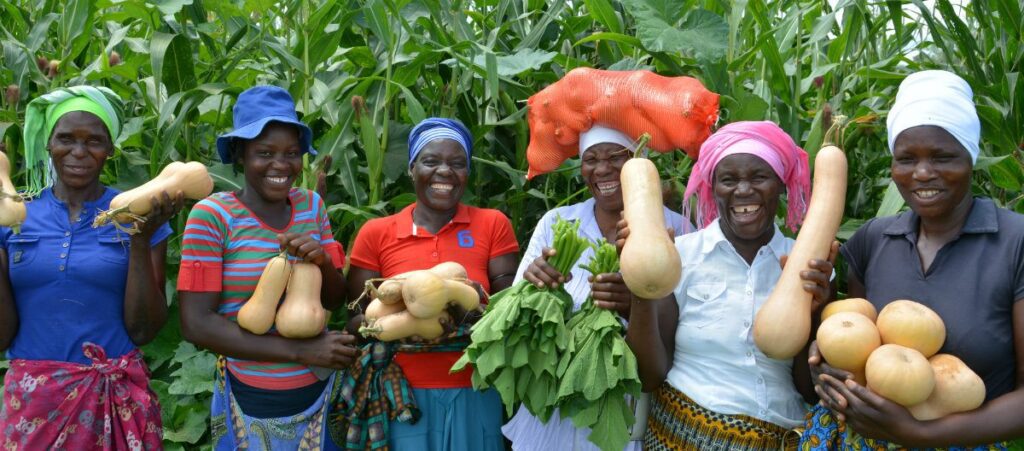
These courses and workshops will help Muwanika, Kimbowa, Christine and Kisembo who were at the event. They run orphanages in the Gambia, Kenya, Nigeria, and Uganda. On this particular event, many of the attendees came from Uganda. This is because The Peoples Hub have been particularly trying to help the people of Mityana. They are on the main road, A109 to the capital of Uganda, Kampala.
Other things that came off the back of the event:
Simon is also working on a bamboo project for the whole of Kenya. This project is led by the wonderful, Dr LeeAnn Teal and Impact Fashion Hub. Bamboo being the connector here!
Do join our Social Enterprising Network and Let's Get Social Solving in 2023!
We are SO excited to welcome friends old and new as we now begin the roll-out of Socially Homes, our highly anticipated learning and networking programs.
Pack your bags for a road-trip guys!
We're off on tour of BEST practice social innovation:
Enterprise, Impact, Housing, Support, Campaigning, Investment, Development, Policy, Practice, Funding, Strategy, Solutions & More!
Over the next few years, as trusted Founding Members help us trial our pilot programs, we'll visit a diverse collective of leading impact investment initiatives, giving unique access to some of the most progressive social impact solutions operating in Britain - and across the rest of the world.
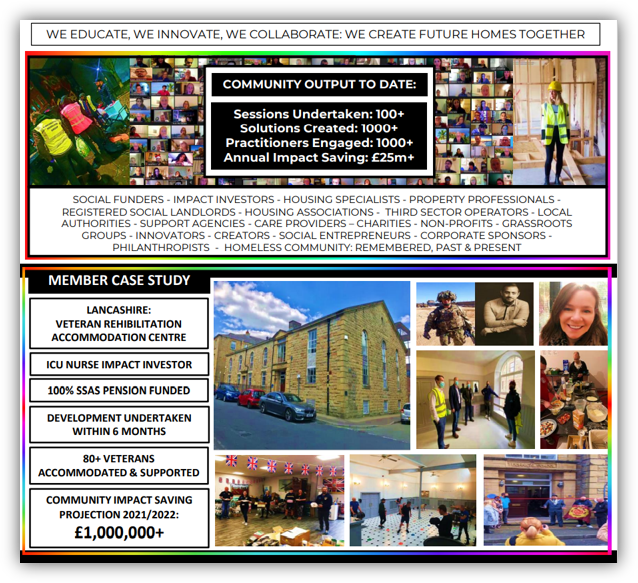
Members will be immersed in a new topic as they join an intensive, interactive learning and networking experience EVERY month, with virtual knowledge exchange sessions providing real-time specialist guidance and on-going exposure to new professionals, their techniques, tips and tricks.
You'll interact with the very best operators in our field, meeting everybody involved in the process, from joining impact investors at local development sites, to visiting government officials in Whitehall.
You'll get a rare insight from local authority staff and housing association bosses
You'll observe the very best specialist support providers in action
You'll be hosted by charitable organisations making institutionalized change
You'll join grass root groups as they deliver crisis care services on the ground
And, of course, you'll meet MANY of the people we collectively work to serve along the way ![]()
Creating Social Solutions of the Future
Person Centred Approaches to Homelessness Eradication: Outcomes, Impact, Sustainability & Growth
With Northumberland Three Tier Solution Showcase - 'Street to Home and Beyond' - inc. Entire Project Contributor Round-table, Accommodation Portfolio Tour, Resident Farm Visit and Live Q&A Session
![]() Communities Creating Change
Communities Creating Change
The Journey of Housing First Part 1: Collaboration, Innovation & Mass Action
With Manchester Street Outreach 'Walk & Talk'
VIP Hosts, Speakers & Special Guests
Followed by Private Dining & Storytelling at iconic Stock Exchange Hotel, where Amy was recruited to assist for a number of months during 2015, as 60+ rough sleepers made global headlines when they squatted the derelict building - and were allowed to stay for the wintertime.
![]()
![]()
![]()
'Welcome to My Socially Home'
Fundraising for 'Socially Ho, Ho, Homes' Christmas Giving Pop Up & Corporate Social Responsibility Showcase
EXCLUSIVE Founder's House/Rainbow HQ Festive Philanthropy Dinner, Champagne Reception, Private Chef, VIP Speakers, Elite Roundtable Strategy Session
VERY Special Guests & Dancing til Dark
Plus! Optional Volunteering Experience Opportunities with Member Charitable Partners
1-1 Consultation Sessions with Amy are included for All Guests
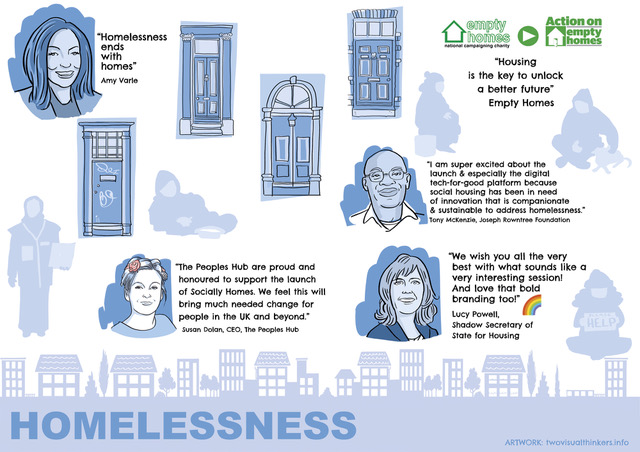

JANUARY 2023
Impact Investment Global Gathering
Best Practice Showcase: Strategies, Solutions, Leaders & Creators
Remote & Digital UK Property Impact Investment (from Malaysia)
Maximising a Digital Media Reach of Millions (from Los Angeles)
Compassionate Street Policing (from Florida)
Social Enterprise Funding Models (from Africa)
Housing First (from New York)
Community Built Recovery Village (from Las Vegas)
All Dates: TBC
FEBRUARY 2023
National Approaches to Tackling Global Homelessness Crisis
Aligning Cities, Cultures, People & Practices to Create Unified Action for Ethical Social Impact
Visiting Friends of Socially Homes in London
Including our Personal Introduction to Crisis HQ, with Crisis CEO Address & Housing Heads Session, Live Tour of Crisis Skylight Centre, Parliamentary Visit with VIP DLUHC/CHI Strategy Session, Member Private Dining & Knowledge Exchange Evening
All Dates: TBC
March 2023
In Loving Memory of John Chadwick and Kelly Walsh ![]()
![]()
Becoming a Force for Good
Compassionate Campaigning, Practical Pilot Research & Positive Policy Change
Remembering John and Kelly in Kent with Dee Bonett Amy & Friends
Attend our Rainbow 'Pet Soup Kitchen' Pop Up & Street Well-being Clinic, Pilot Project Accommodation Tour & Social Strategy Session with LA Reps & Local Delivery Partners
All Dates: TBC
APRIL 2023
Media, Marketing & Movement Building:
The Journey of Housing First
Part 2: 'Social Media for Social Good'
Becoming a 'Social' Influencer and the Secret Art of Digital Promotion for Ultimate Societal Impact
Inc PR, Storytelling, Media Campaigns, Online Fundraising, Expert Etiquette, Positive Profile Raising, Audience Leverage
Mastermind Classes with Digital Media & Amplification Experts, inc Reps from Amnesty International & Wikipedia, the Social Change Agency & Specialist Community Members
Please join our Global Gatherings Network to access events.
All Dates: TBC
The ONLY way to access this HIGHLY subsidised program is to join the community as a Founding Member to be part of our pilot trials!
Ready for a Happy New Year. Let's Get Social
NOW IS THE TIME! PLEASE JOIN HERE.
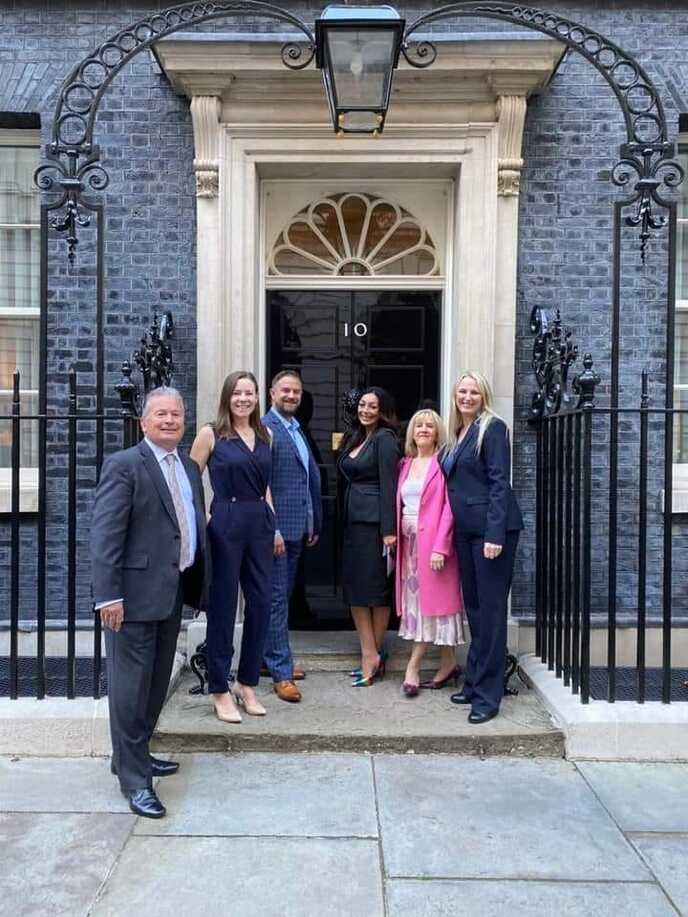

Please note, all digital sessions and site visits are INCLUDED in the monthly membership fee - Dinners, drinks and externally hosted evening events etc are optional to attend and charged separately.
A LIMITED number of tickets for some of our events will be available to non-members on a first come, first served basis, as we conduct a traffic audit across various hosting platforms, so please let us know ASAP if you would like to reserve a place at ANY session listed above before this goes live.
If you have any questions send a message to The Peoples Hub and they will link you up with us. We are so excited for the year ahead to share our learning journey and solutions, and I can't wait to get on the road and get to know the new Dream Team! - Amy, and #SociallySorted Sam xX
Ted X innovative in its approach did just that. Not only did they bring Kermit the Frog to share a message in 2015, that still holds great relevance today, but they also got the most creative man of all time to introduce Kermit the Frog. The late Sir Ken Robinson, the master of creativity, one of the most famous TED talks of all time.
The greatest quotes, sayings, metaphors are not found among the list that already exists; they are found in the moments when you look beyond the obvious message, and search beyond the conscious mind; they are found when you pay extra attention when reading a book, listening to a podcast or ted talk, or when watching something. When looking beyond the smoke and mirrors, that is where you find the real nuggets of information, the wisdom not to be missed.
"When I was young, my ambition was to be one of the people who made a difference in this world. My hope is to leave the world a little better for having been there."
Jim Henson
Isn’t that what we all hope to do, it is certainly the driving force behind The Peoples Hub.
The question is how do we do it?
Many people are afraid to take chances, opting for the safer option, hoping to avoid failure. At The Peoples Hub we know the only way to create change is through failure, then learning, then trying again.
We take the creative chances as without the will and the courage to do so, we simply would not achieve our goals.
In society, we often associate creativity with art, music, words; but what about the everyday creativity that takes place. Innovative ideas, ground-breaking research, new designs, cooking, doesn’t that all take creativity. To do what has never been done involves the deepest level of creativity.
“Creativity is the true engine of our economy.”
Kermit The Frog
You don’t wait until you have time to tap into your creativity – you make time and allow your creativity to flow.
In this ted talk Kermit explains:
“Michael Angelo chipped away at a lot of stone before he found his angel”
“Albert Einstein scribbled a lot numbers before he came up with theory of relativity”
You see the creators of our time did not wait for the answers before starting, they started with the certainty that they answers would come.
Something not many possess, and even when they do, they are afraid to say it loud; afraid that somehow, they don’t have what it takes. But what if they do, what if you do. What if people believed in their own magic, what would happen then?
Amy and Susan believe in “Ridiculous Optimism” What started as a conversation, led them here. Who knew in 2015 at an International Women’s Day conference for the Pink Link Ladies, meeting for the first time this would be their story? This story carried them here because they were not afraid to do what had not yet been done. They believed in their own magic, and if nothing else they believed in shining a light on the magic of others.
Amy's brainchild, Socially homes, is an innovative approach to homelessness, and is fully supported by The Peoples Hub. If you are someone who views the world through a unique lens, someone who values humanity and someone who has a desire to help people, not just on a local level but on a global level, then jump on board.
We cannot do this alone.
That's where The Peoples Hub comes in. Bringing together the Socially: Game-Changers to create more magic! Helping with specialist consultation, media services, and often giving a voice to the voiceless.
“The process of evolution is to transcend and include”
Ken Wilber
He says: “As we evolve, we don’t just become different we go beyond who we were originally, while still including all we were before.”
This is a message we want to harness. We don’t want to take people from the ruins, place them in safety and help them forget the ruins, no, at The Peoples Hub: Socially Homes, we want to harness their journey, and using a holistic and person-centred approach we want to see people as the whole being.
Will we get it right all the time? Absolutely not! But will we keep trying, YES.
Today’s mistakes could be tomorrows innovations.
What can we learn from children? Let’s forget what we know and embrace the wisdom of a child.
“In the beginners mind there are many possibilities in the experts mind there are few.”
Sunryu Susuki
Let’s be courageous enough to shout from the roof tops, let’s be more 5-year-old in our approach:
Think about when children fall, they shout help from the roof tops and look to adults for comfort and reassurance
They don’t struggle on with something they find difficult, the second they struggle, they shout for help/support
They may give it their best shot, or minimal effort, either way they see no shame in asking or needing support
They see the value in togetherness, they don’t have the ‘I must be okay on my own’ they go straight to ‘I need someone to hang out with me’
Everyone has one piece of the puzzle to offer you, if all we have to do is share what we know and share the wisdom of others. We will win!
With good friends, you can't lose!
Kermit the Frog
We need you, all of you.
“Reading gives us someplace to go when we have to stay where we are”
Mason Cooley
Reading has many benefits, including managing anxiety, helps prevent age related cognitive decline, build vocabulary, increases your ability to empathise.
How can we make it more accessible to all?
How can we get more creative? Popup community libraries are a relatively new initiative that encourages unused spaces to be used as pop up libraries. Some ideas are old phone boxes, disused bus shelters, post boxes and bookshelves within supermarkets.
How can we take this hidden treasure and embed in it in communities all over the world?
Many cities, countries have the luxury of a library, a place they can visit, read, relax, and feel at home.
However, what pop up libraries offer is a step beyond that. They are offering the highest form of outreach.
Think of spaces you have within your disposal, how could you be part of this campaign, small steps make big changes. Do you have anything in your street or local park that could be transformed.
Draw inspiration from the articles below and let’s get creative.
We love a theme! Especially one that transports us. Check out these 20 Little Free Libraries designed to look like British phone booths. Find these libraries and many more on the Little Free Library map or mobile app! Ahh, feels like we’ve taken a trip across the pond…
The Municipality of Bağcılar, Istanbul's most populated district, is offering a novel service for commuters: bus stop libraries. Bookcases placed in bus stops will have a wide selection of books for those looking to spend their leisure time while waiting for the bus.
Initially set up in 11 bus stops, the municipality plans to install libraries in others soon. A total of 20,000 books were placed in small libraries since September when they were first introduced, and they are being changed with new titles twice a week.
Commuters can either read the books at the seated bus stop or borrow it and read it somewhere else. They can return the books to another bookcase at another bus stop.
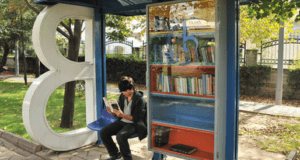

To read more please visit: https://www.dailysabah.com/turkey/2014/10/17/bus-stop-libraries-to-end-commuters-tedium
A solitary bus shelter in Mollington has been redundant since the buses stopped passing through the village – until now.
A new initiative has created a pop-up library using the old bus stop as a reading room.
The idea is for Mums, Dads, children and passers-by to stop, rummage through the shelves and have a few quiet moments with a book.
Instigators of the scheme John, Helen and Dorothy Fielding who live in the village said that they wanted to bring a little colour into the village and its old bus stop. They said: “Mollington does lack amenities having no shop or pub so we thought a small haven of public books would help brighten up our rural scene and create the opportunity for more social interaction.”
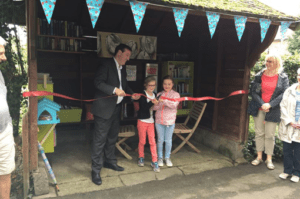

Read the full article: Disused Mollington bus stop converted into pop-up library
Yes, there is a library in Ankara composed entirely of books thrown out (presumably) by people who hate reading (or who work in publishing). After Turkish garbage collectors began finding more and more trashed books, they decided to start organizing them in an abandoned brick factory—and voila, a library was born.
At first, the surplus books were lent out to friends and families, but as the library gained in popularity the garbage collectors opened things up to the public, who also began to donate books. With a collection of over 6,000 books, the local municipality, Çankaya, found room in the budget for a full-time library employee, and has converted a garbage truck into a mobile library that doubles as a donations truck.
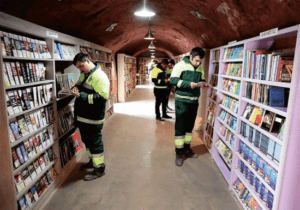

To read more, please visit: https://lithub.com/turkish-garbage-collectors-have-created-a-library-from-discarded-books.
Incredible work happening all over the world, how can we capitalise on the learning. How can we work together to create more, accessible, reading spaces? Spaces available to all.
What can we learn from these amazing community initiatives? Often, we report on what is not working, what we need to do more of and where we are falling short.
Today we celebrate what is working well, and an opportunity to invite everyone in.
“To be extraordinary you don’t have to create art, you just have to consume it.” (Susan Cain)
Let’s start consuming art!
#ArtDayEveryDay
You may enjoy reading: Save Our Libraries


“No-one has ever become poor by giving” (Anne Frank)
Diarist
What do you do when something shows up on your doorstep, something that you did not choose, cause and definitely did not anticipate?
No matter how well prepared you are for life, at times the battles will choose you, and the earlier the battles choose you, the more challenging life will be.
Are you always fully prepared? I am guessing no. However, if you have been raised around love, nurture and have a sense of belonging, you have an anchor, something you can draw on in these moments that prevent you from spiralling into crisis.
Imagine a 45-year-old male/female on the streets, homeless, unemployed, knee deep in addiction. Burnt every bridge there is to burn. Tell me what you see? Do you see the battle or person?
Children most certainly never choose the battles they are left to fight. Battles so tough that they are unable to self-regulate, making it impossible to make informed choices, and making them susceptible to risk taking behaviour. Their mind and bodies surviving in fight/flight mode. Belonging not to the path that was designed for them, nor the path they dream of walking. They belong no-where, in a world full of care givers they remain an island.
If children are not seen, supported, or nurtured in that moment the consequences can be devastating.
These are exactly the people we want to reach, the people who feel discarded, people whose battles were chosen for them. Yes, the outcomes may look like a result of the choices they have made, the actions they have taken, but you have understand the battles that child had to face in order to survive.
The support currently available cannot take this man/woman to greater heights. It is likely the housing options will be minimal and offers available only in an environments/area they have spent a lifetime trying to escape.
Addiction services, it is likely when he/she seeks support, the support will be around managing the addiction and not the ‘why’
Here at The Peoples Hub, we want to do what has yet not been done. We want to see our people on their worst and best day, we want to understand the essence of the person, and offer a holistic approach to the overall wellbeing to every individual we encounter, through our thoroughly vetted organizations. We don’t want to just give people the tools to survive, we want to offer an opportunity to thrive, not despite the battles but in spite of the battles.
We do not possess the power the change the past, but with an opportunity of belonging and nurture, we have a chance at changing the trajectory of the path they once walked. A new path, one they never dreamed of walking.
They say it takes a village, here at The Peoples Hub we want to be that village.
"I am seeking. I am striving. I am in it with all my heart." Vincent van Gogh
Be part of our village.
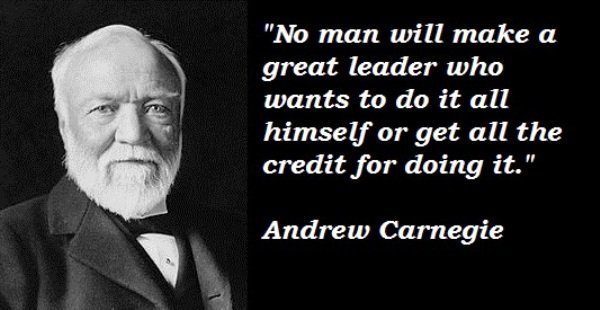

They say everyone is self-made but only the rich admit it. I say there are so many people, influences, and situations that play a hand in any one person’s success and or misfortunes.
How do we bridge the gap, limit the divide, and capitalise on the learning from both the wealthy and communities living in deprivation? Each with valuable lessons to share if only we are willing to listen. Each working themselves to the bone for a different cause, a cause unique to them.
How can we change the language that sets a derogatory tone from the get-go: disadvantaged, vulnerable, low income, low achieving to name a few? How can we learn to step back and “Stand not in judgement at what the poor have to carry, but stand in awe at how they carry it” (Gregory Boyle)
After visiting the Andrew Carnegie Museum on Tuesday, it sparked a whole host of questions, ones I feel need answered:
How does a man from humble beginnings reach such heights?
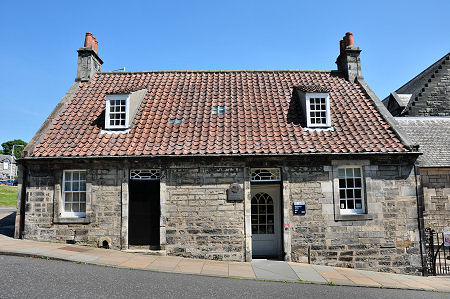

The answer is he had many people of influence behind him, including a family in Pittsburg offering a new life. He could decipher the morse code by ear, which set him apart and ahead. By his own admission, from a young age he had a hunger for learning and mother who could not only see but supported his potential. So, a combination of his own talents, combined with the opportunity to go to America, I believe all play a part in his story. Without the opportunity to emigrate would his talents have gone unnoticed.
How does he ensure his success is not in vain?
He ensures his success was not in vain through his philanthropic work. He quotes: “A man who dies rich, dies disgraced” he believed in the art of giving and could see the value in it.
Libraries, museums, grants, hero awards the list is endless!
A beautiful museum with so many interesting facts around the man himself and the various steps that led him to become the richest man in the world.
Some Background
The big question is how a man from humble beginnings goes on to achieve such wealth; a wealth that is still supporting people to this day.
A wealth that opened libraries all over the world and allowed the famous gates of Pittencrieff Park to remain open forever. The Park gates had been closed to the public for many years, and when Andrew made his money, he bought the land, opened the park gates, and vowed they would never close again. The original key to the gate can be found within the cottage museum.
Was it his humble beginnings that was the catalyst for him sharing 90% of his money or the atrocity of his men that striked in the early days? Whatever the reason, there was something in Andrew that saw the legacy in paying it forward.
More importantly how do we break stigma and stop people feeling like being poor is somehow a default within them.
How do we reach children at a young age and give them the tools they need so they too can prosper? With social media widening the gap of inequality and promoting a life out of reach for many, how do we offer an education that allows room for growth in all areas, one that allows them the possibility of success and an opportunity to make a difference.
How do we reach the children who don’t qualify for a sporting apprenticeship, sponsorship or funded education, how to we ensure no one is left behind?
What can we do in early education to tackle these issues in such a way that lifts the lives of young people, harnessing the message they already have but with the aim exposing them to other viable options?
We know from studies that young people living in poverty, who don’t thrive in the education system are more likely to be become involved in criminal justice, often starting with petty crime. How do we ensure they outwork the hand they were dealt?
So many books, articles, and advice around ‘think rich, grow rich’ like it’s that easy. The rich say save, invest, track, which is all great advice if you are not high functioning in survival mode; when your number one priority is not to ensure your house is warm and there is food to eat. Never mind any additional costs associated with raising a family and running a home. That is advice is so valuable, but the message is lost for people struggling to make ends meet.
The media will report everything related to the worst outcomes for people living in poverty; life expectancy, risk of long-term illness, the effects of the ACES score, the limitations that prevent people from thriving. (2)
What they don’t talk about is what is working well.
They don’t talk about the community spirit, the sense of belonging, the village that surrounds people; 2022 and people still chapping neighbours’ doors to see if they need anything at the shop. The fact that no matter how many times you fall, as soon as you pick yourself back, the community is there to celebrate you. The community champions running various sports/writing/photography clubs for free.
You only must look at the Harvard study “Good genes are nice, but joy is better” to understand what matters most to people in terms of overall happiness. According to the Harvard study there is great value and lessons to be learned from people living in what is deemed as poverty.
The Harvard study, almost 80 years old, has proved that embracing community helps us live longer, and be happier. Close relationships, more than money or fame, are what keep people happy throughout their lives, the study revealed. Those ties protect people from life’s discontents, help to delay mental and physical decline, and are better predictors of long and happy lives than social class, IQ, or even genes. That finding proved true across the board among both the Harvard men and the inner-city participants. (2)(https://www.health.harvard.edu/blog/the-secret-to-happiness-heres-some-advice-from-the-longest-running-study-on-happiness-2017100512543
Also, to add to that when you look ‘The Top Five Regrets of the Dying’ written by Bronnie Ware there is no mention of finance anywhere.
"I wish I'd had the courage to live a life true to myself, not the life others expected of me."
"I wish I hadn't worked so hard."
"I wish I'd had the courage to express my feelings."
"I wish I had stayed in touch with my friends."
"I wish that I had let myself be happier."
Bronnie Ware is a former banker, palliative carer, singer and songwriter, international speaker and author of several books. She wrote this book to shine a light on the lessons we need to learn while we are still living. (3)
There is great freedom, self-esteem and sense of worth associated with financial freedom.
People living in deprivation are not broken.
No child born at any point gets to choose who they are born to.
Wealth is the result of intergenerational wealth, opportunities, exposure to education, a hunger for learning, commitment, the right contacts/connections. It includes a nurturing environment that allows one to grow. Adversity is the paradigm to that; the very skills, connections, opportunities that help one to prosper, is exactly the same for what holds people back. The agency does not lie with the child who has no choice.
We need to see people as they are; celebrate people and allow people to walk their own path. For the children, adults who want more; we need to bridge that gap and offer exposure and opportunities that help them, not only get from A to B, but onto to C and D and some.
References